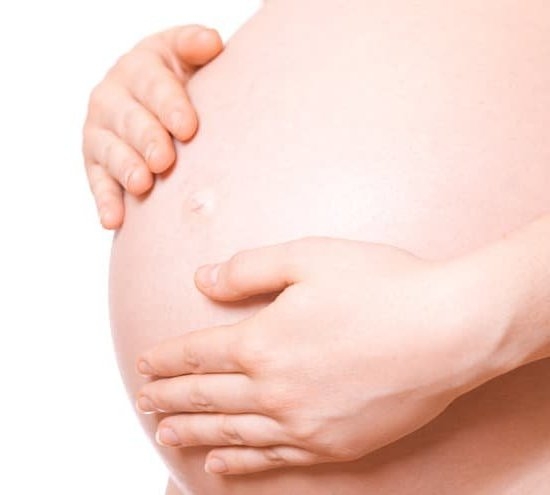Are you wondering what’s the earliest you can take a pregnancy test? Knowing when to take a pregnancy test is crucial for accurate results, whether you are hoping for a positive or negative outcome.
In this blog post, we will explore the importance of understanding the earliest time for taking a pregnancy test and how it can impact your results. From understanding the menstrual cycle to learning about the science behind pregnancy tests, we will provide valuable information to help you navigate this important aspect of reproductive health.
Understanding the menstrual cycle plays a key role in determining when it is appropriate to take a pregnancy test. The timing of ovulation and menstruation is crucial in understanding how pregnancy tests work and when they are most effective. In addition, knowing early signs of pregnancy can also provide valuable insight into when it might be appropriate to take a test.
In this blog post, we will delve into the science behind how pregnancy tests work and how they detect the presence of hCG, the pregnancy hormone. We will also explore common symptoms and signs that may indicate a possible pregnancy before taking a test. By understanding these factors, you can make more informed decisions about when to take a pregnancy test and increase the likelihood of accurate results.
Understanding the Menstrual Cycle
The menstrual cycle plays a crucial role in understanding when it is the earliest you can take a pregnancy test. The menstrual cycle typically lasts around 28 days, although this can vary from woman to woman. It begins on the first day of your period and ends on the day before your next period starts. Understanding the menstrual cycle is essential because it can help determine when ovulation occurs, which is key in understanding the best time for pregnancy testing.
During the first half of the menstrual cycle, follicle-stimulating hormone (FSH) stimulates the ovaries to produce mature eggs. Around day 14 of the cycle, one of the eggs is released in a process called ovulation. This is when a woman is most fertile and has the highest chance of becoming pregnant. If an egg is fertilized by sperm during this time, it will travel to the uterus and implant into the uterine wall, leading to pregnancy.
Understanding Ovulation and Pregnancy Testing
Understanding how ovulation relates to pregnancy testing can help women choose when to take a test with greater accuracy. Generally speaking, it’s best to wait until after your missed period for more accurate results.
Tracking Your Menstrual Cycle
Using tools such as menstrual calendars or fertility apps can help track your menstrual cycle and estimate your ovulation date more accurately. By knowing when ovulation occurs, you can better understand when it’s appropriate to take a pregnancy test for reliable results.
Tracking changes in cervical mucus and body temperature are also ways to monitor ovulation signs that indicate potential fertile days, aiding in deciding optimal times for pregnancy testing.
Additionally, over-the-counter ovulation predictor kits are available at most drugstores for women trying to conceive who want another way of tracking their fertile window if needed before taking ideally timed pregnancy tests.
Irregular Menstrual Cycles
Women with irregular menstrual cycles may find it challenging to predict their ovulation date accurately using traditional methods or apps designed for typical 28-day cycles.
In these cases where menstruation does not follow predictable patterns – stress or hormonal imbalances may contribute-a healthcare provider should be consulted for guidance tailored to individual circumstances concerning optimizing timing for taking pregnancy tests.
If there are concerns about unusual symptoms affecting menstruation tracking irregularity other than observed intermenstrual bleeding or temporary stress-induced late periods using home-based fertility monitors that connect with phones via downloadable app technology might facilitate tracking otherwise unpredictable cycles easing preparation regarding ideal times purportedly taken for urine-based or blood drawn quantitative hCG lab tests.
How Pregnancy Tests Work
Pregnancy tests work by detecting the presence of the hormone hCG in a woman’s body. The hormone hCG, or human chorionic gonadotropin, is produced by the developing placenta shortly after a fertilized egg attaches to the uterine lining. This hormone is typically only found in pregnant women and is what pregnancy tests are designed to detect. There are two main types of pregnancy tests: urine tests and blood tests.
Urine tests, which are commonly used at home, detect hCG in a woman’s urine sample. These tests are convenient and easy to use, providing results within minutes. Blood tests, on the other hand, measure the amount of hCG present in a woman’s blood. While these tests typically take longer to provide results and must be administered by a healthcare professional, they are more sensitive and can detect lower levels of hCG than urine tests.
Once a woman becomes pregnant, her body begins producing hCG, which then starts to rise rapidly in the early stages of pregnancy. Pregnancy tests work by detecting this hormone at various levels depending on the manufacturer’s specifications. It is important for individuals taking a pregnancy test to carefully read and follow the instructions provided with the specific test they are using in order to achieve accurate results.
In addition to detecting hCG, some pregnancy tests also contain an indicator that confirms when the test has been properly used or has detected hCG. This could be in the form of colored lines or symbols appearing on the testing stick or window. Understanding how pregnancy tests work can help individuals determine when it will be most accurate to take a test based on their menstrual cycle and early signs of pregnancy.
Early Signs of Pregnancy
When it comes to early signs of pregnancy, it’s important to understand that every woman’s experience can be different. While some may experience classic symptoms like morning sickness and fatigue, others may not notice any major changes in their body until much later in the pregnancy. Nonetheless, there are several common signs that may indicate a possible pregnancy even before taking a test. Here are some of the most prevalent early symptoms:
- Missed Period: One of the most well-known signs that you might be pregnant is a missed period. If your menstrual cycle is regular and you suddenly miss a period, it could be a strong indicator of pregnancy.
- Implantation Bleeding: Some women may notice light spotting or bleeding around the time of implantation, which typically occurs about 10-14 days after conception.
- Breast Changes: Swollen or tender breasts can be an early sign of pregnancy due to hormonal changes in the body.
It’s important to note that these symptoms can also be caused by other factors such as stress, illness, or hormonal imbalances. However, if you are experiencing any of these early signs and suspect that you might be pregnant, it’s natural to wonder what’s the earliest you can take a pregnancy test for accurate results.
What’s the Earliest You Can Take a Pregnancy Test for Accurate Results?
The earliest you can take a pregnancy test largely depends on the type of test you choose. There are two main types of pregnancy tests available-urine tests and blood tests. Urine tests are the most common and can typically detect hCG levels approximately two weeks after conception. It’s best to wait until at least a week after your missed period for the most accurate results.
On the other hand, blood tests conducted at a doctor’s office can detect hCG even earlier-sometimes as early as 6-8 days after ovulation. These tests have higher sensitivity levels compared to over-the-counter urine tests and offer more accurate results in the earliest stages of pregnancy. Always follow the instructions provided with your chosen pregnancy test to ensure the best chance for an accurate result.
When Can You Take a Pregnancy Test
When it comes to taking a pregnancy test, timing is crucial. The earliest you can take a pregnancy test will depend on the type of test you choose to use. There are two main types of pregnancy tests: urine tests and blood tests.
Urine tests are the most common type of pregnancy test and are available over-the-counter at most drugstores. These tests detect the presence of hCG in your urine, which is a hormone that is only present during pregnancy. Most urine pregnancy tests are designed to be used from the day your period is due. However, some more sensitive tests can be used earlier, with some claiming they can detect hCG levels as early as 6-8 days after ovulation.
On the other hand, blood tests for pregnancy are more accurate and detect smaller amounts of hCG than urine tests. These tests can provide results even before a missed period, making them the earliest possible option for testing for pregnancy.
In summary, if you’re wondering what’s the earliest you can take a pregnancy test, it’s important to consider not only the type of test you plan to use but also factors such as your menstrual cycle and when you ovulated. Understanding these factors will help determine the appropriate time frame for taking a pregnancy test and ensure accurate results.
| Type of Pregnancy Test | Earliest Possible Time Frame |
|---|---|
| Urine Test | 6-8 days after ovulation |
| Blood Test | Before a missed period |
Factors Affecting Test Accuracy
Taking a pregnancy test is an important step for many women who suspect they may be pregnant. However, it’s crucial to understand that the accuracy of the test can be influenced by several factors. One of the most significant factors affecting the accuracy of a pregnancy test is the timing of testing. Determining the earliest possible time for taking a pregnancy test is essential to ensure reliable results.
The earliest you can take a pregnancy test largely depends on the type of test you are using. Most over-the-counter urine tests claim to be around 99% accurate on the day of your missed period. However, studies have shown that some tests are much more sensitive and can detect human chorionic gonadotropin (hCG), the hormone produced during pregnancy, as early as six days before your missed period.
In addition to timing, another factor that can affect the accuracy of a pregnancy test is the sensitivity of the test itself. Some tests are designed to detect lower levels of hCG in urine, making them more sensitive and able to provide accurate results earlier than less sensitive tests. It’s important to consider these factors when deciding when to take a pregnancy test in order to avoid obtaining an inaccurate result.
Tips for Taking a Pregnancy Test
Use the First Morning Urine
One important tip for taking a pregnancy test is to use the first morning urine for the most accurate results. This is because the concentration of hCG, the pregnancy hormone, is highest in the morning after you have been asleep and have not consumed any liquids.
Using first morning urine can help increase the likelihood of detecting a pregnancy if it is present. If it is not possible to take the test in the morning, try to avoid drinking too much liquid before testing.
Follow Instructions Carefully
Another important tip when taking a pregnancy test is to carefully follow the instructions provided with the test kit. Different brands of pregnancy tests may have specific steps for how to use them and how long to wait for results. Ignoring or incorrectly following these instructions can lead to inaccurate results. Be sure to read and understand all of the directions before proceeding with the test.
Avoid Testing Too Early
It can be tempting to take a pregnancy test as soon as you suspect you might be pregnant, but testing too early can yield false negative results. The earliest you can take a pregnancy test will depend on your menstrual cycle and when ovulation occurred. In general, it is best to wait until at least one day after your missed period for the most accurate results.
Testing too early may result in an incorrect negative result, leading you to believe that you are not pregnant when you actually are. If you want to test earlier than this, opt for an early detection pregnancy test that can detect lower levels of hCG in the urine sooner than traditional tests.
What to Do After Taking a Pregnancy Test
After taking a pregnancy test and receiving the results, it’s important to know what to do next. If the test is positive, it’s time to schedule an appointment with a healthcare provider to confirm the pregnancy and start prenatal care.
Early prenatal care is crucial for the health of both the mother and the baby, so don’t delay in seeking medical attention. Your healthcare provider can provide you with valuable information about what to expect during your pregnancy and answer any questions you may have.
On the other hand, if the test is negative, it’s essential to understand that false negatives can occur, especially if the test is taken too early. If you suspect you might be pregnant despite a negative result, wait a few days and take another test or consult with a healthcare provider. Additionally, if you’re trying to conceive and receive a negative result, continue monitoring your symptoms and consider making lifestyle changes that may improve your chances of conceiving.
Regardless of your test result, it’s important to take care of yourself emotionally and physically. Whether you are excited about a positive result or feeling disappointed by a negative one, make sure to practice self-care and seek support from loved ones if needed. Pregnancy tests can bring about a range of emotions, so be gentle with yourself as you navigate this new chapter in your life.
Conclusion
In conclusion, understanding the earliest time for taking a pregnancy test is crucial for obtaining accurate results. The timing of a pregnancy test can significantly impact its reliability, so it is important to be well-informed about when it is best to take the test. By considering factors such as the menstrual cycle and the sensitivity of different types of tests, individuals can increase their chances of getting an accurate result.
It is essential to remember that early signs of pregnancy can vary from person to person, and not all individuals may experience symptoms immediately. This makes it even more important to be aware of the earliest possible time frame for accurate testing. Additionally, knowing when to take a pregnancy test can help alleviate unnecessary stress and anxiety while waiting for results.
Overall, by having a good understanding of the menstrual cycle, how pregnancy tests work, and the potential factors that can affect test accuracy, individuals can approach the process with confidence. Obtaining accurate results early on allows for proper planning and preparation for whatever the outcome may be. Whether hoping for a positive or negative result, being well-informed about when to take a pregnancy test is key in achieving peace of mind and making informed decisions moving forward.
Frequently Asked Questions
How Soon Will a Pregnancy Test Read Positive?
A pregnancy test can read positive as early as 10 days after conception, but for more accurate results, it’s best to wait until the first day of a missed period. hCG levels need to be high enough for detection.
What Is the Earliest a Pregnancy Test Will Show Up?
The earliest a pregnancy test will show up is typically around 7-12 days after ovulation. However, some early result tests claim they can detect pregnancy even earlier than this, although with less accuracy.
How Long Does It Take for the hCG to Show Up in Urine?
It typically takes about 14 days after conception for the hCG hormone to show up in urine at levels high enough to be detected by a pregnancy test. Waiting until the first day of a missed period is usually recommended for more reliable results.

Welcome to my fertility blog. This is a space where I will be sharing my experiences as I navigate through the world of fertility treatments, as well as provide information and resources about fertility and pregnancy.





